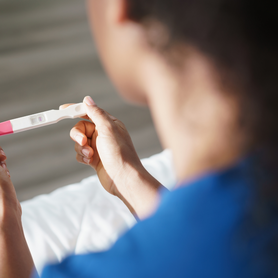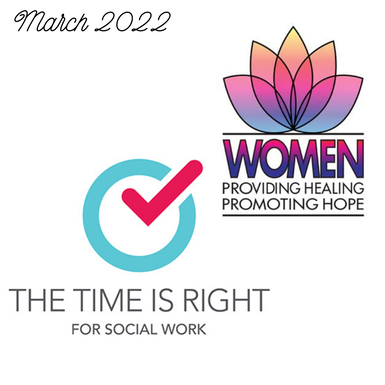|
Teenage girls in foster care are more than twice as likely to become pregnant as their peers not in care. In fact, 71% of young women who have been in foster care will be pregnant by age 21, and those who become pregnant before age 19 are increasingly likely to experience a second pregnancy - again before age 19.
These are startling statistics, even more so when you consider the educational and thus career outcomes for teen mothers. Only 2% of teen mothers graduate from college. Prior to that, only 40% graduate from high school. Youth in foster care have similarly grim outcomes, with 3% of young people who have been in care earning a bachelor’s degree. Imagine what that percentage looks like when discussing specifically teen mothers in foster care. Preventing teen pregnancy for young women in foster care is multifaceted. It requires - among other things - access to quality and consistent sex education as well as quality and consistent health care, and the youth in foster care must feel as if they have a support system they can turn to without judgment. But prevention isn’t the only area that requires better services and resources. The teenagers who become pregnant deserve access to the healthcare they want and require. Those who become mothers should be afforded the opportunities to complete their education and find careers that enable them to support their family. At the R.J. Leonard Foundation, we are proud to be one such resource for young people in foster care, many of whom are young mothers. If you would like to be a part of helping these ever-impressive young people defy the statistics, contact us here.
0 Comments
As the war in Ukraine continues, major news outlets have begun highlighting the individuals and families impacted, both those remaining in Ukraine and those who have fled. Every story is heartbreaking and harrowing, like the story last week in which CNN interviewed foster parents. The article served not only as a reminder of the weight many adults and guardians carry through this war but also an indication of how the trauma of war may be compounded by the trauma youth in foster care have already endured.
Throughout COVID-19, many have pointed out the stark impact the pandemic and subsequent lockdowns have had on youth in foster care. Their mental health, physical health, education, financial security and overall well being have suffered. They continue to suffer. For the young people in foster care, as well as those no longer in care, in Ukraine, they now also face an unimaginable hardship. There is no way for us to erase the pain these young people have faced and continue to face right now. But we can remember they are there, and through the war as well as the recovery afterward, we can find ways to support. If you are looking for ways to aid the people of Ukraine now, we encourage you to find a trusted and respected organization, such as the World Central Kitchen, for your donation. It’s hard to believe that 2 years have passed since COVID-19 first upended life as we knew it in Bucks and Montgomery Counties. What began as a global yet still distant concern, quickly became a new reality and a present fear for us in March of 2020. In the years that have passed since, we have learned more about COVID-19, taken steps to combat the illness and found an unending ability to adapt for public health and personal safety. We have found strength in each other while not being “with” each other, and we have been reminded again and again how lucky so many of us are.
At the R.J. Leonard Foundation, the past two years have been a constant lesson in gratitude as you - our community - have stepped forward repeatedly to support our Fellows through ups and downs we could not have predicted 24 months ago. You have helped our Fellows’ children have the supplies they need for virtual and in-person school years; you have contributed to tuition payments and rental emergencies; and you have never once questioned the need. Thank you for weathering this storm with us. We would not be making it through without you. March celebrates two groups of individuals: Women and Social Workers. It’s a fitting combination, as an estimated 83% of social workers are women. And while we could take this opportunity to highlight the women in social work who have made documented history - like Jane Addams and Ida B. Wells - we ask you instead to reflect on the many women in social work who make history and help to change history for the individuals they serve every day.
Whether helping individuals through crises as counselors and case managers, working to locate resources, offering guidance and advice on parenting, relationships and more, advocating for equity and justice, or simply by being there as an ear, a shoulder and a voice, social workers have an unquantifiable impact on the lives they touch. For so many, social workers make history simply by caring. Our world as a whole and as individuals is a better place because of social workers. At the R.J. Leonard Foundation, we are honored to work with a number of inspiring social workers, who also happen to be women, including:
Happy Social Work Month and Happy Women’s History Month! |
Categories
All
Archives
July 2024
|
|
1097 Street Road
New Hope, PA 18938 |



 RSS Feed
RSS Feed
